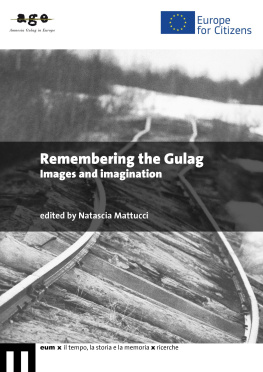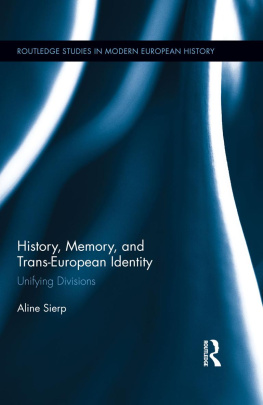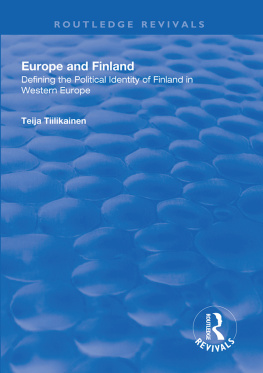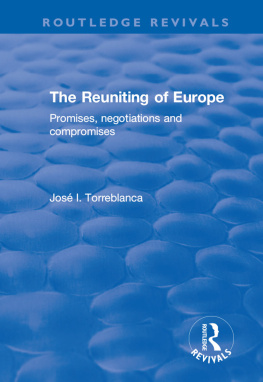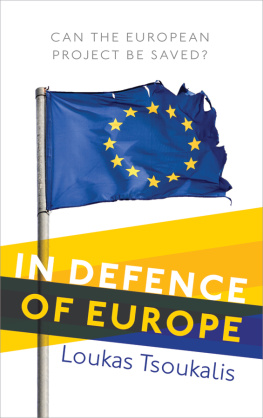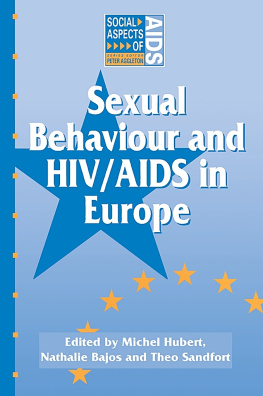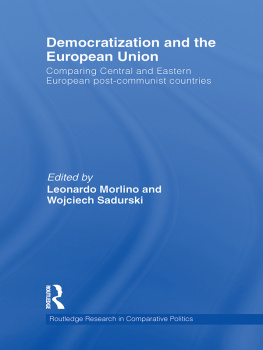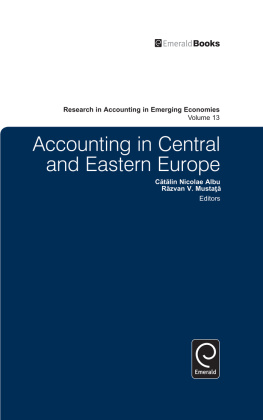Natascia Mattucci, The past as pathmarks
In his now famous Face lextrme , Tzvetan Todorov writes:
Im not interested in the past as such, but in the teaching that I believe we can to draw from it and that appeals to us today. But which one? The events themselves never reveal their sense, the facts are not transparent. To teach us something, they need to be interpreted.
This reflection on the interpretation of the past seems to be particularly suited to introduce the work of teaching and research on the history and memory of the reticular system of labour and repression camps usually referred to by the acronym Gulag which has structured the political history of the former Soviet Union and that this volume documents. The past, especially in its most tragic aspects, cannot be tamed or mastered through mechanisms that claim to explain everything. The darkest events are not transparent, but they need a careful hermeneutic work that involves different disciplines, starting from the indispensable contribution given by historiography. The intersection of history, philosophy, literature, visual arts already fruitful in throwing light on Nazi totalitarianism and the Shoah as the epitome of a deadly violent century is the path followed in the methodological research for the European project AGE, Amnesia in Gulag Europe, as testified by the essays collected in this volume.
The studies conducted in the course of the project activities move in the wake of the investigation of the conditions of possibility that were the backdrop to the development of Soviet totalitarianism and its camp-system, both in a historical and geopolitical perspective. At the same time, particular attention was paid to what many have referred to as the essence of totalitarianism its claim to modify and manipulate the human focusing on the living conditions and the relationships developed within microcosms as monadic as the camps. At the basis of this dual purpose, there is not the will to reconstruct the past as such, providing data or detailed statistics. As Todorov wrote, we are interested in keeping an eye on one often ignored and misunderstood yesterday, because from it you can learn lessons that are addressed to us today. It is the modernity of this lesson from the past that fostered the memory exercises collected in this paper. As paradoxical as it may seem, telling about the evil can act as a wellspring of good, if that helps making the world less alien. These exercises are in the eyes of Hannah Arendt expressions of that infinite activity called understanding. An activity that does not have to absorb the impact of reality or soften its bumps, but just try to make sense of it. In doing so, it is safe to cross disciplinary boundaries and to employ means which encourage imaginative capacity. Because there is no understanding, not even a possible sense, without the exercise of the imagination.
The ability to understand a past that is drifting apart, trying to get in the shoes of those who lived that experience in the first person, is the difficult path to follow if we want these events not to stay silent forever. When the extent of the drama that arises before us seems to exceed our feeling, as in the case of necessary or mass-produced dead, the sense of inadequacy and failure causes a dulling of thought and feeling that leaves the facts slide away with their burden of responsibility and questions. However, Gnther Anders, author of an intransigent diagnosis of the minority of human feeling before technique, has not given up providing guidance on how to adjust the capacity and flexibility of our feelings to the unpredictable excess of what we can perpetrate. The limited imaginative capacity of human beings must at least try to represent the nothingness and react to this sense of loss for what is not given once and for all awakening feelings such as fear. Imagination is the ability to produce images from a sensitive perception and to retain them in their absence by expanding the mind.
Are there images of the real able to establish a different relationship with the world and have repercussions on the ethical sphere? The writings produced as a result of the totalitarian events point out how the arts and humanities have a decisive role in the development of the imaginative faculty that Anders called moral imagination. If we think of the cinema, the imaginary figure of a single tortured person whose life we have come to know, could reveal more about the millions of deaths than it would have done their millionaire addition.
Likewise, some contemporary images of the places that hosted forced labour camps, as sparse and little descriptive as they are, force our gaze to stop and to linger. The viewer must take action to make sense of them, because that kind of image as in the case of the work of Tomasz Kizny does not master the past, but it tells a story that we can see if we are able to represent it in the present. Not all representations succeed in this, especially in an era saturated with images that technology delivers to our home and that are likely to clog our imaginative capacity. In the educational path followed in the project activities of AGE, as documented by Filippina Calafatis essay, the work on the images of Kizny was supported by an analysis of texts that have become classics in both the concentration camp scene and in literature tout court. These are images and writings that can orient us in an attempt to make exercises of political-historical imagination.
This methodological choice helps highlighting some problematic issues that give account of the past but, at the same time, say something about the possible diseases that are nestled today in the folds of established democracies. This is the case of the reflection on totalitarianism as ideocracy developed by Gianluca Vagnarelli which reminds us, echoing Arendt and Todorov, that mankind cannot be thought of as an abstraction, but it represents a set of different individuals. If you think about it as an abstraction whether it is people, nation, race or other entities used in the metaphysical sense it is easier to commit in its name crimes of all sorts, as we keep seeing every day. It is possible to resist to all-embracing abstractions that try to bury and erase the history of a particular territory and its inhabitants, as Darius Juodis said about Lithuania, by paying a heavy price. The resistance against asphyxiated logics, single thoughts and parties, unanimity that engulfs all dissent, demands an awareness difficult to mature in extreme circumstances. Even in less dramatic situations, as it happened in Italy after the war, the difficulty or unwillingness to get an idea of the real political situation in the former Soviet Union is demonstrated by the way in which the national press welcomed the publication of The Gulag Archipelago by Aleksandr Solenicyn, as attested by Silvia Casilio in her contribution. Lanfranco Di Genio in his essays gives us an account of the blanket of silence that Western countries dropped on Soviet history, insisting also on the systematic use of fiction and falsehood by the communist regime.
Surely, in the study of the history of a political regime and its crimes, historiography must remain the high road, as recalled by Costantino Di Sante in defining the cardinal points of the history of the Soviet Gulag. However, if we take care of the burden that time gave us, trying to make sense of it, we are allowed to use new digging and penetration tools. The past can be a signpost, a compass for today, if its memory activates our feeling, expanding the scope of our imagination. We need bridges between the phenomenal world and the life of thought, because the lessons of the past can illuminate a path. If literature, pictures, movies, are able to act on the memory letting us hear the wail that comes from the past, then that path will be less uncertain. It is time to determine which works will continue to talk over their here and now providing analogies, quotations, metaphors, with which a thought that can live without abstractionisms, can held tight to the world.

